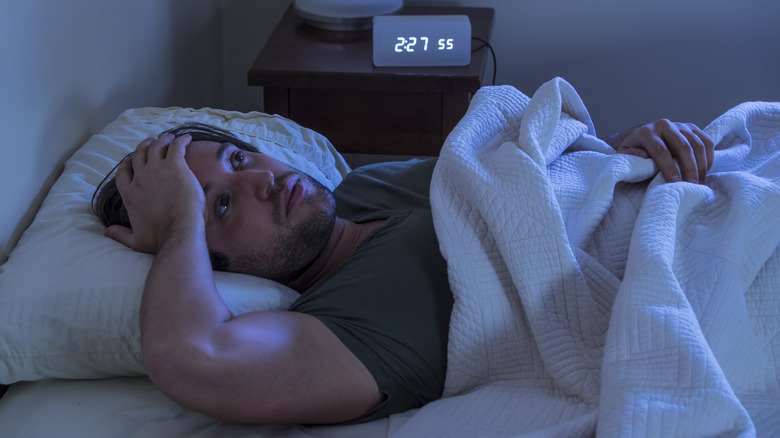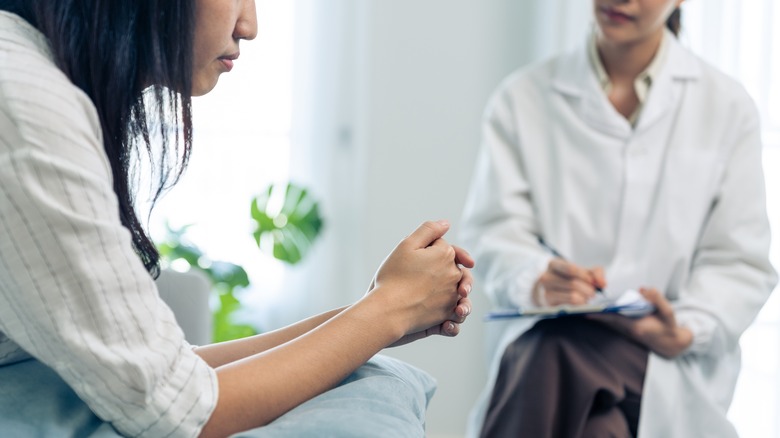Tips For Falling Asleep When You Have Anxiety
If you deal with anxiety, you probably know that one of the side effects can be trouble falling asleep or staying asleep. When you don't get enough sleep, it can lead to other problems like depression and low energy, which can negatively impact your health, per Harvard Health Publishing.
One positive step is making a good night's sleep a priority. A good place to begin is going to bed and getting up at the same time every day of the week. Your bedroom should also be calming. This means keeping it as quiet, dark, and cool as possible, reports Harvard Health Publishing. Medical News Today suggests wearing an eye mask can help if your bedroom is too bright. The Sleep Foundation explains that a comfortable bed can help you get restful sleep, which might mean upgrading your mattress. In addition, you shouldn't be looking at any electronics before hitting the bed because the light from them can affect your circadian rhythm, via Cleveland Clinic.
Other changes you can make
Some lifestyle and dietary changes might help you reduce anxiety and therefore get good sleep. Harvard suggests limiting (or eliminating) caffeine and alcohol as both are stimulants. You should also stay away from foods that might give you indigestion late in the day. Likewise, don't drink too much water later in the evening because that might lead to more trips to the bathroom. If you take naps, it might be worth it to skip them for a few weeks to see if that helps you sleep more sound at night.
Trying relaxation techniques before bedtime can also be useful in reducing anxiety, per Sleep Foundation. Biofeedback, deep breathing, and autogenic training are just a few methods that can help you relax while you're laying in bed (via Psychology Today). If you have chronic anxiety, you might need to talk with a therapist, who can help you find the best anxiety treatments, per the Sleep Foundation.


